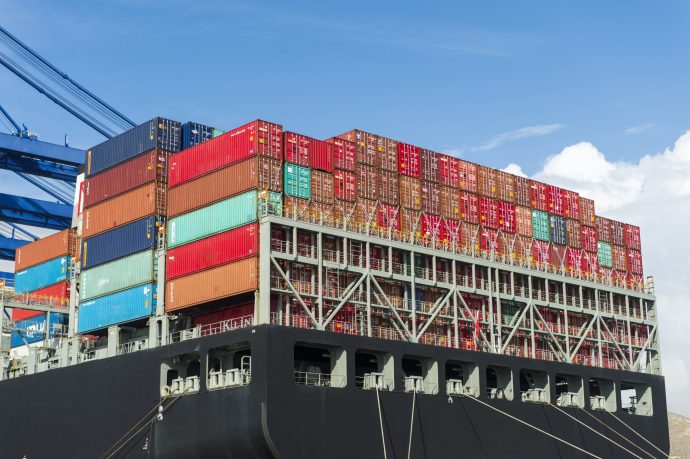With a 7,000+ km long coastline and ports serving as vital gateways to global markets, Brazil’s maritime sector plays a key role in its national economy. Its port sector saw 6% growth in 2024, with a 15% surge in container operations. Yet, it has long faced significant challenges in reaching its full potential. Outdated infrastructure, congestion, regulatory complexities and inefficient hinterland connections have created bottlenecks that frustrate operators and increase costs.
Growing competition leaves no room for inefficiency. With global trade showing no signs of slowing, margins and timelines are tight, and Brazil’s ports must do more than move cargo.
The challenge
Despite being Latin America’s largest economy, Brazil’s port infrastructure has struggled to keep pace with the demands of global trade.
Major ports like Santos (Latin America’s busiest port), Itajaí, Paranaguá, Rio de Janeiro and Suape act as key hubs, handling a substantial portion of the country’s cargo traffic. Itajaí and Paranaguá specialise in container handling, facilitating the movement of manufactured goods and commodities.
But over the last two decades, the average container ship has doubled in size, increasing cargo volumes and placing additional strain on facilities that are often outdated or under-resourced. Congestion is common, with limited storage capacity, inefficient logistics networks and bureaucratic hurdles compounding the problem.
“As a major commodity exporter, Brazil needs substantial investment in its ports, terminals, and surrounding infrastructure,” says GAC Brazil’s Commercial Manager Thiago Luz.
“The current lack of sufficient warehouses and silos to store the increasing volume of goods demonstrate the urgent need for comprehensive enhancements to support the nation’s export capabilities.”

But it will take more than physical improvements. Increasingly, port users demand seamless service, clear communication and swift problem resolution. Failure to deliver could risk losing business to more agile competitors in the region and beyond.
Ambitious
Brazil has responded with an ambitious programme to modernise its ports.
Expansion projects at Santos and Itajaí aim to increase capacity, modernise facilities to accommodate larger vessels, boosting both their throughput and their competitiveness.

Projects such as the Rio de Janeiro Port Modernisation Programme, the Suape Port Complex Expansion and new facilities at Porto Açu also signal Brazil’s commitment to making infrastructure fit to meet the evolving needs of global trade in the 21st century and beyond.
But building better facilities is only part of the solution. The maritime sector’s future success hinges on its ability to deliver exceptional customer experience with tailored solutions and proactive communication to foster long-term relationships and stand out in an increasingly competitive and crowded field.
Partner in transformation
GAC Brazil is a leader in delivering the highest standards, even in challenging conditions, and bridging the gap between operational efficiency and client satisfaction. With a presence at key ports across the nation, the company is more than a service provider – it is a proactive partner in addressing the industry’s challenges.
“Our customers have tight margins and even tighter deadlines,” says Mauro Sobral, Operations Manager with GAC Brazil. “They need to feel confidence in their agents on the ground. And with GAC Brazil, they have the peace of mind that comes from clear communication, timely service, and constant support.”
GAC Brazil’s teams tailor solutions to meet the unique needs of each client, offering services ranging from end-to-end logistics management to bespoke shipping solutions. Its investments in technology, training and process improvements underscore its commitment to excellence in the region.

Infrastructure upgrades are vital, but the true differentiator lies in the ability of ports and service providers to anticipate client needs, address challenges and provide seamless support.
GAC Brazil’s proactive stance exemplifies this approach. By aligning closely with clients and stakeholders, the company ensures it is prepared to adapt to changes in import and export activity.
“With the many construction and development projects going on, it is crucial to avoid bottlenecks for future operations,” adds Mauro. “By aligning closely with our clients and stakeholders, we are prepared for changes in import and export activity, and will adapt as necessary.”
A new course
The story of Brazil’s maritime evolution is one of resilience, innovation and a renewed focus on the customer. While infrastructure projects are reshaping the physical landscape of its ports, GAC Brazil is helping upgrade the customer experience.
As Brazil navigates the challenges of a competitive global market, its ability to combine world-class infrastructure with exceptional customer service will determine its future success. And by putting clients at the centre of every decision, GAC Brazil is addressing the immediate challenges and laying the groundwork for a sustainable and prosperous future.